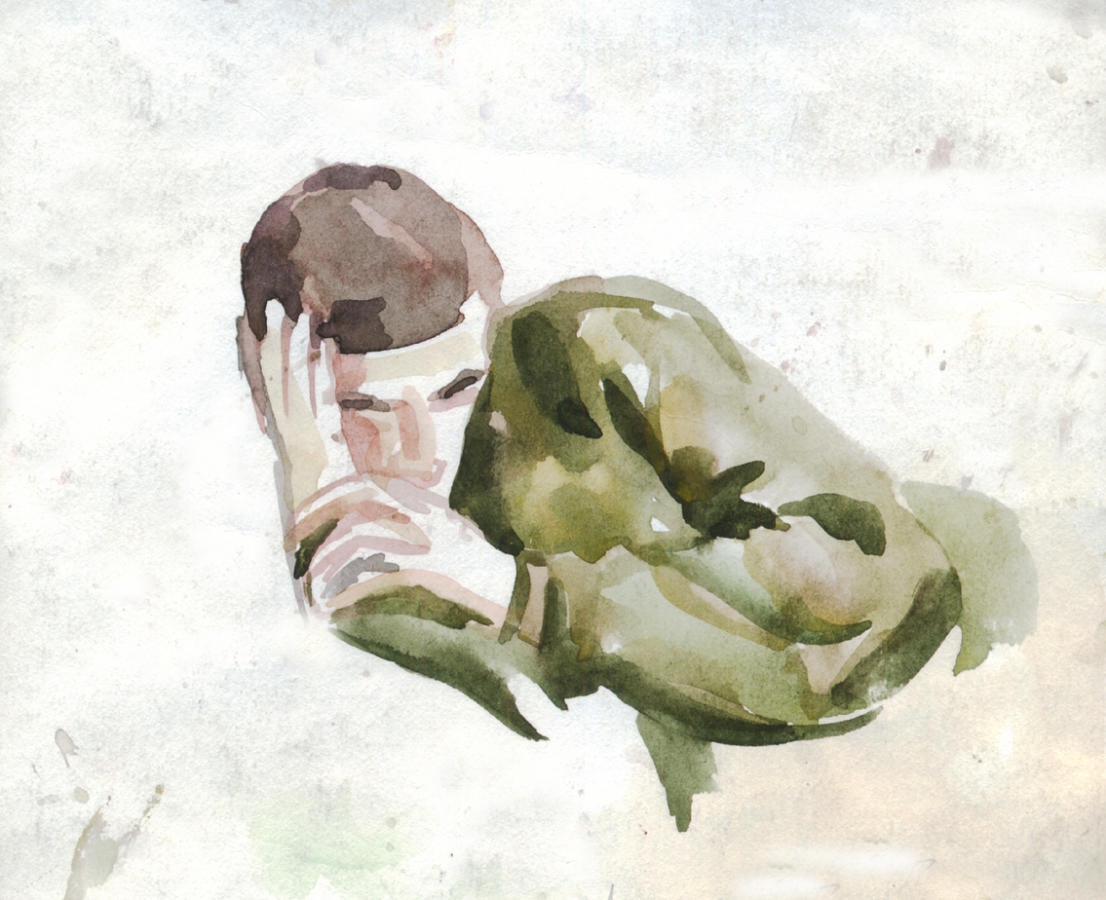You’re on your way to your chemistry midterm, when all of a sudden your stomach drops. You can hear your heart pounding in your ears, and for a second it feels like you might pass out. You use your sweaty hands to reach for your pencil and try to remind yourself that you’re ready for this — you’ve been studying for weeks. So why are you so nervous? Because you’re feeling anxiety — a totally normal emotional reaction that sometimes gets out of hand.
So what is anxiety, exactly?
Anxiety is a fearful or negative reaction to something that isn’t happening in the present. Such as…
-When you’re still worrying what has already happened in the past (like flubbing that shot in last week’s lacrosse game or messing up the Haftarah reading during your bar or bat mitzvah)
-When you’re feeling stressed about what could happen in the future (like the chance you’ll get a bad grade on tomorrow’s test)
What does anxiety look like?
Everyone experiences anxiety differently. You may feel all of these symptoms, just one, or something else entirely:
Physical symptoms: Sweating, trembling or shaking; racing or irregular heartbeat; feeling unsteady or dizzy; difficulty breathing; feeling overly hot or overly cold.
Emotional symptoms: Feeling nervous, hyper-aware, or even just feeling “off” or “not quite right”
Behavioral symptoms: Avoiding things that make you feel anxious; being extra-prepared; difficulty falling or staying asleep; making excuses for why you should avoid otherwise common activities
Who gets anxiety?
Teens we know say, “Everybody!” And whether it’s true or not, Jews certainly have a reputation for anxiety, what with the neurotic New York Jew stereotype and the always-worrying Jewish mother. That’s not necessarily a bad thing. You need anxiety to survive. Back in caveman days, it told us to pick up our clubs and get ready to run when we heard a rustling in the bushes. The fear that it might be a sabertooth tiger is what triggered our body’s natural fear response: to fight (bop the predator with our clubs) or flight (run like the wind).
But can anxiety be helpful in my life?
Yes! You may not have to stress about being mauled by a wildcat on your way to school, but without anxiety, you may not worry about how you’ll perform on your English final—and then you may not study. Or, if you’re crossing the street and see a car coming at you, horns blaring, you wouldn’t jump out of the way.
So when does anxiety become a problem?
The quick answer is, if it’s hurting you more than it’s helping you. What that looks like:
-You stop doing things that are expected of you (think: cutting school because you’re nervous about your grades)
-You stop doing things that are important to you (think: skipping basketball tryouts because you’re convinced you don’t stand a chance)
-You feel completely miserable doing those things (think: your stomach hurts every day before school or you dread things that used to be fun, like hanging out with your friends)
Do I have an anxiety disorder?
Only a licensed professional can diagnose you and help you get the right treatment, but it can help to understand the different conditions that are related to anxiety:
This is: Normal anxiety that gets out of control, affecting your daily life in a negative way for several months.
Looks like: Losing sleep, eating more or less, and feeling too overwhelmed or scared to carry out the simplest daily activities.
This is: A feeling of dread or discomfort surrounding social situations, often in fear that you are being judged or disliked.
Looks like: More than nervousness or shyness. (Feeling antsy about meeting new people on the first day of school is normal; withdrawing from your friends or never leaving the house is not.)
Obsessive-Compulsive Disorder (OCD)
This is: When your worries cause either obsessions or
Looks like: Obsessions are persistent or intrusive thoughts that cause anxiety (like thinking that you’ve left your straightener on when you get to school); compulsions are repetitive behaviors that someone feels they must do (like wash their hands repeatedly to feel clean).
This is: Experiencing repeated and unexpected panic attacks.
Looks like: A very sudden rush of worry or fear, often accompanied by physical symptoms such as shortness of breath or chest pain.
This is: An intense, persistent, irrational fear of something specific—like heights, blood, or snakes—that interferes with daily life.
Looks like: Walking an extra 45 minutes to get to school to avoid being in a car, or skipping your friend’s backyard birthday party because you’re afraid of snakes.
Now what do I do?
If any of these symptoms sound like you, you’re not alone. Anxiety affects 18% of Americans, though only about one-third of people get treatment. There are plenty of ways to alleviate anxiety, and not all of them are drastic — some are even as simple as breathing. Check out our How to Help page to find out more.
One last note!
Depression and anxiety are two different disorders, but they often go hand in hand — so you could be experiencing both. Find out more about depression here.
Our Experts: Dr. Anu Asnaani, Assistant Professor at the Center for the Treatment and Study of Anxiety, University of Pennsylvania School of Medicine; Dr. E. Blake Zakarin, Instructor of Medical Psychology in Psychiatry, Columbia University Clinic for Anxiety and Related Disorders.






